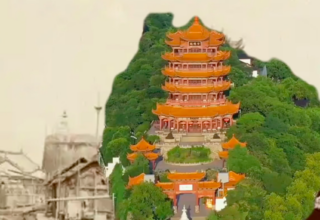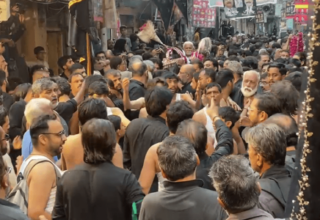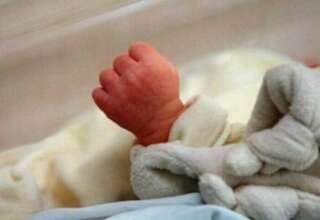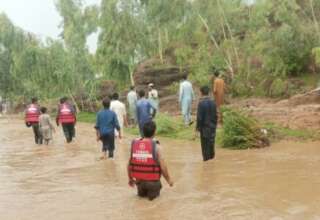
GAZA: Palestinian resistance group Hamas on Saturday shared a list of captives to be released today with Israel, following the release of 24 captives the previous day, the first of a planned four-day truce.
Israeli security officials were reviewing the list, the office of Prime Minister Benjamin Netanyahu said in a statement.
The pause in the fighting was the first break, with both sides saying hostilities would resume as soon as the truce ended. US President Joe Biden expressed hope the pause could be extended, however.
The released captives, including Thai farm workers, were transferred from Gaza and handed to Egyptian authorities at the Rafah border crossing, along with eight staff of the International Committee of the Red Cross in a four-car convoy, the organization said.
They were then taken to Israel for medical checks and reunions with relatives.
Qatar, which acted as a mediator for the truce deal, said 13 Israelis had been released, some with dual nationality, as well as 10 Thais and a Philippine national-farm worker employed in southern Israel when they were captured.
Thirty-nine Palestinian women and children detainees were released from Israeli jails, some after years of imprisonment.
Biden said there was a real chance of extending the truce, adding that the pause was a critical opportunity to get humanitarian aid into Gaza.
He declined to speculate how long the Israel-Hamas conflict would last. Asked at a press conference what his expectations were, he said Israel’s goal of eliminating Hamas was legitimate but difficult.
A Palestinian youth sits next to his bicycle amid the rubble of destroyed buildings in Gaza City in the northern Gaza Strip following weeks of Israeli bombardment. PHOTO: AFP
The Palestine Red Crescent Society said 196 trucks of humanitarian aid carried food, water, and medical supplies through the Rafah crossing on Friday, the biggest such convoy into Gaza since the territory was blockaded by Israel.
About 1,759 trucks have entered the narrow besieged enclave since Oct 21, it added.
Israel has relentlessly bombed the besieged enclave round the clock, killing more than 14,000 Palestinians, roughly 40% of them children. Hundreds of thousands of Gaza’s 2.3 million people have fled their homes, including most of those in its northern half.
Palestinians cheer the release of prisoners
On the other side, Palestinians cheered the return of prisoners from Israeli jails.
Of the 39 prisoners freed by Israel on Friday, 28 were released in the occupied West Bank, an AFP correspondent reported, while the other 11 were brought to annexed east Jerusalem, according to the Palestinian Prisoners’ Club.
Crowds of Palestinians in the West Bank set off firecrackers, waved flags, and whistled as two white coaches ferried prisoners out of the Ofer military camp, according to AFP journalists at the scene.
“I spent the end of my childhood and my adolescence in prison, far from my parents and their hugs,” freed prisoner Marah Bakir, 24, told AFP after returning to her home in annexed east Jerusalem.
“That’s how it is with a state that oppresses us.”
Palestinians fleeing the north along Salaheddine road help a man with a bandaged leg as they walk in front of Israeli army tanks in the Zeitoun district on the southern outskirts of Gaza City. PHOTO: AFP
Earlier in the evening, Israeli authorities fired tear gas to disperse the crowds. The Palestinian Red Crescent said three people were shot and wounded by Israeli security forces.
“The police are in our house and are stopping people from coming to see us,” said Fatina Salman, whose daughter Malak, now 23, was among those released.
Israeli Prime Minister Benjamin Netanyahu, meanwhile, vowed to bring all the Hamas captives home.
“This is one of the goals of the war, and we are committed to achieving all the goals of the war,” he said.
Jens Laerke, the spokesman for the UN humanitarian agency OCHA, expressed hope that the pause would lead “to a longer-term humanitarian ceasefire”.
Gazans have struggled to survive with shortages of water and other essentials.
The ceasefire also sparked a mass movement of thousands of people who had sought refuge in schools and hospitals from relentless Israeli bombardment.
Palestinians walk amid the rubble of destroyed buildings in Gaza City in the northern Gaza Strip following weeks of Israeli bombardment. PHOTO: AFP
The UN estimates that 1.7 million of Gaza’s 2.4 million people have been displaced by the fighting.
In southern Gaza’s Khan Yunis, where many Palestinians fled, a cacophony of car horns and ambulance sirens replaced the sound of war.
People loaded belongings onto carts, strapped them to car roofs, or slung bags over their shoulders, crowding streets to return to their homes from temporary shelters.
Israeli warplanes dropped leaflets warning people that the war is not over and it is “very dangerous” to return north, the focus of Israel’s military campaign.
Several thousand Palestinians nevertheless attempted to move north on Friday, the UN humanitarian affairs organization said.






